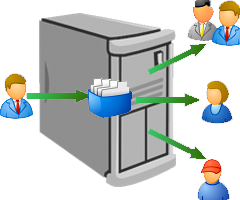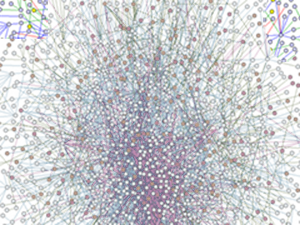
Cloud CORA, located at CloudCORA.com, is a website that will house CORA's online, cloud based, storage solution.
How can CORA can be unbreakable when Servers can be breached, and identities stolen?
To understand why CORA is unbreakable, one must clarify (explained below) these different facets of security and how they impact regular commerce at retail outlets, and e-commerce in this global marketplace.
You know who you are, and generally speaking, anyone who meets you face to face, may recognize you.
What about applying for credit? You provide your name, address, phone number, date of birth, and perhaps other "documents". Now this is where it is difficult for honest people to relate... what if someone knows your address, phone number, and your date of birth... they can claim to be you... and the person at the store, or bank, won't know the difference.
"Identity theft" uses information about you to trick someone else into believing they are you. Strangely enough, the creditor, bank or business still "looks to you" for the money, which translates into "hurting your credit".
This is why it is important to safeguard your personal information.
When you go to a website, there is no way to "know if it is you"... can't see you, or even take your picture.
How does the Website know if it is you? Should you be allowed to see your information? Should you be allowed to download your file(s)?
This is where authentication comes in to play. Authentication is more often referred to as "Sign In", or "Log In".
You provide your user name and password, and if they match up, then you are "assumed" to be "you". There is much work being done in this field of authentication, however, you should understand that, if someone successfully pretends to be "John Doe" and gets into "a server", then "John Doe's" data is comprimised, but not the rest of the users of this server .
There are millions of Servers that are interconnected throughout the Internet. There are more Servers located on internal Networks, that also have a connection to the Internet. Computers have more than 65000 ports, which can be thought of as "doors", since these are the ways in which information gets into and/or out of a computer.
Imagine how difficult it would be to lock, monitor and guard 65000 doors in a house, or mall. If someone Signs in as you, on a server, they violate your data. When someone breaches a server, they violate "much more than just one person's data"!
These are the types of breaches that have been gaining more and more visibility through the media, however, there are many more violations that never make it to the news.
I consider myself a creative and imaginative person, and yet, I cannot imagine how it is possible to guarantee that someone will never break into a "home" again. Nor can I imagine that someone will never break into a "server" again.
What does this mean about the safety of our data, and the confidence with which we can comfortably go online to socialize, do our banking, book our trips and hotel rooms, or purchase products?
So what is the solution? CORA.
Why? Unbreakable.

Authentication
Servers don't see your face. Faceless people ask for their data all the time. Data goes out to faceless people, 24-7, around the globe.
Servers today
This data, on a server, is locked up in a safe...
all in one place.
As discussed above The Cloud - servers... one cannot expect that thieves will disappear, nor that they will never again break into a server.
If a thief does breach a server, and steal data, CORA will protect the data so that it is useless to the cyber criminal!
So how could CORA be "broken"?
If an individual user elected to keep all of the files on a single computer, or USB, then should someone steal this computer or USB, they could conceivably have access to the secured data.
For corporations or institutions the only vulnerability would be having someone on the inside who has sufficient permissions to determine where each of these files are located, and then the permission to access them. With proper record keeping and best practices in place, such a criminal would be readily identified and prosecuted. Moreover, such intimate knowledge of the distributed environment should not be entrusted to a single individual.
With CORA, Cloud based data storage will become the most secure style of data storage. The number of files will be astronomical meaning that it becomes impossible for a cyber criminal to know where a particular CORA solution is stored in its entirety. Should a particular file be compromised, the system can quickly shut down access to other networks, server farms, or data points that may contain the remaining files.

Cloud CORA - imagine
What are the chances that someone might guess (or know) where your 2, 3, 4... or more ... data files are?
What are the chances that someone might breach, not just one server, but multiple servers "at the same time"?